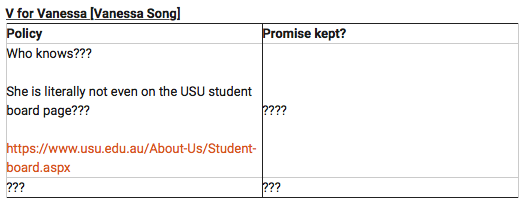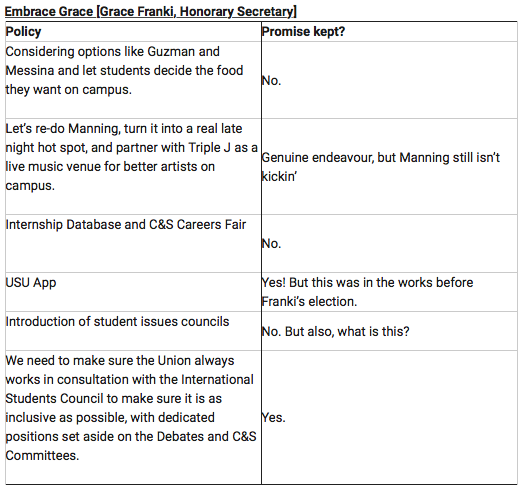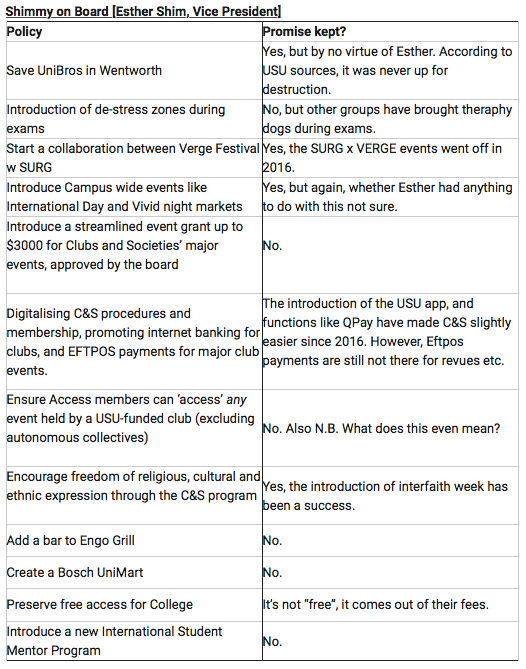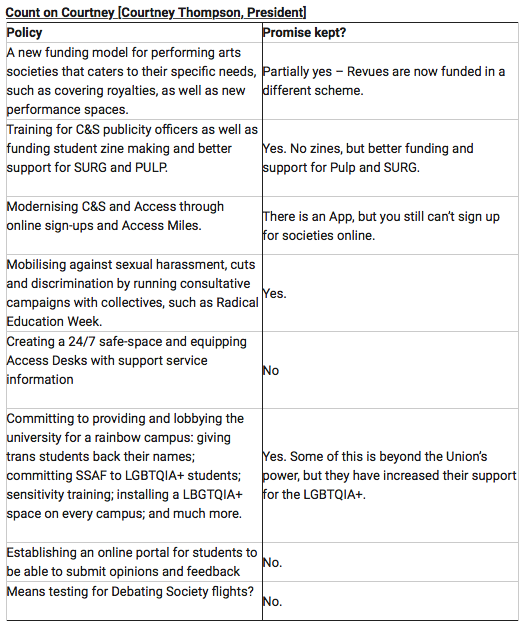Do Board candidates keep their promises? Should They?
In the coming days, scores of students will likely be harassed by a sea of brightly-coloured tees campaigning for their candidates.
The USU election, for those less versed in the toxicity of student politics, is a chance for students to be elected to the Union Board – a collection of 11 students who lead the organisation responsible for Access cards; outlets on campus; clubs and societies; amongst other activities.
The Board Directors serve for a term of 2 years, and run on certain campaign policies. These policies largely manifest as promises to complete projects, rather than value-based promises. For the most part, students are more inclined to care about someone who’ll introduce a Maccas on campus or have therapy dogs during exams rather than fight for a left-wing campus.
Three current candidates that I spoke to today were asked about the balance between project vs. ideals-based campaign policies:
Maya Eswaran: “I think definitely a mix is important. But, I think your ideals and values are really important because it signals to voters how you’re actually going to vote, and that’s what most of your role is on board —voting based on your political beliefs.”
Connor Wherrett: “The answer is definitely project-based policies… Then you have a to-do list that you can get in and work with the other board directors on… the projects work really well with the structure of the USU because you can get into the relevant working group and or committee and get things done”
Lachlan Finch: “I think they are both important. My policy platform is very much projects based… However, it stems from a values base of community, wellness and well-being… at the end of the day I think projects based policy for the USU is what I’m focussing on”
Though, to what extent do these project-based campaigns reflect the actual work the union does?
Below, I’ve evaluated the efficacy of the outgoing Board’s campaign promises from 2016, and how many promises they actually kept. Speaking to the outgoing President Courtney Thompson, whose abstract campaign policies were not implemented on a whole, she highlighted what she thought the nature of board culture was:
"I think the perception is that board directors function as campus activity coordinators [CAC]…Actually, being a board directors is about governing a 27 million dollar organisation, rather than being a CAC. Coming onto board with a strong sense of their ideals and priorities is important.
Running purely a project-based agenda is toxic as it fuels an individualistic board which prioritises people's egos over the wellbeing of the organisation. I think practically the board acts as collaborators. That means that by chance that some policies just happen to happen over others, and when they do happen it rarely has very little to do with the individual board director who had it in their policy doc"
It’s easy for Courtney to say this after two years of being on board, but she didn’t run on just a platform of ideals. For the average voter, and average candidates, promises for project-based policies are still at the forefront of campaigning, and easiest way to ensnare unsuspecting voters.
Perhaps what is necessary is a better understanding of what board does, and how they function, rather than vague, un-keepable promises and agendas.
In the mean time, here’s how the 2016 board did with their promises:





